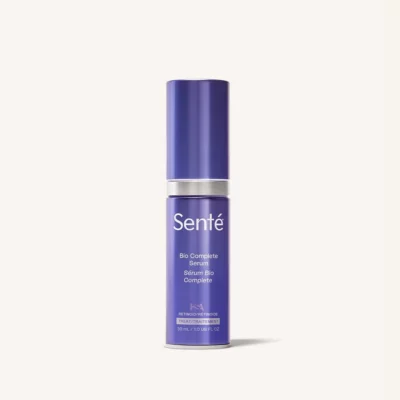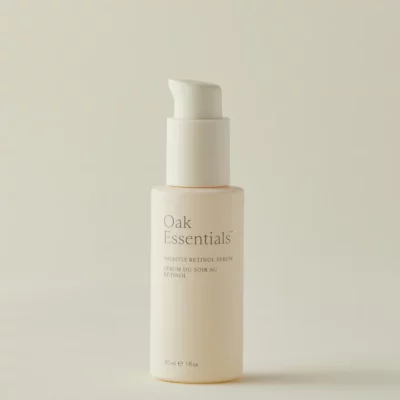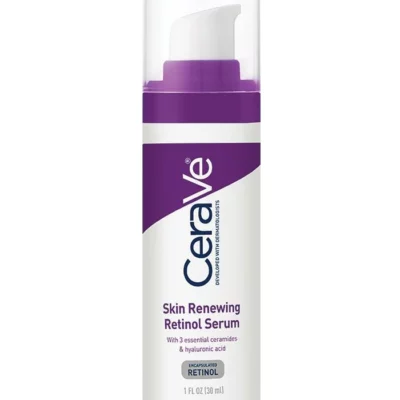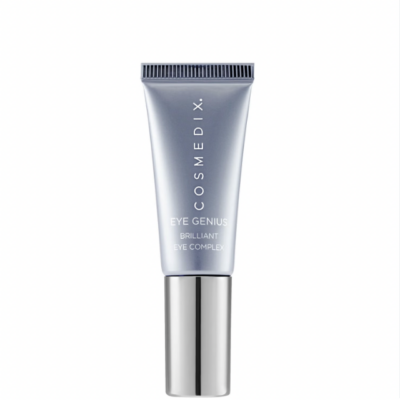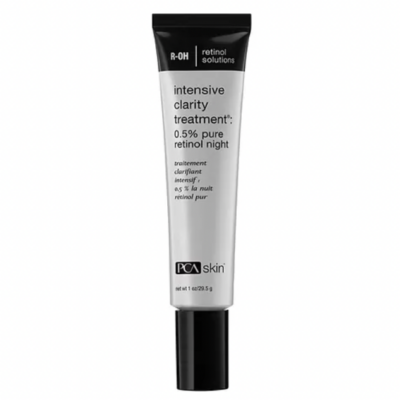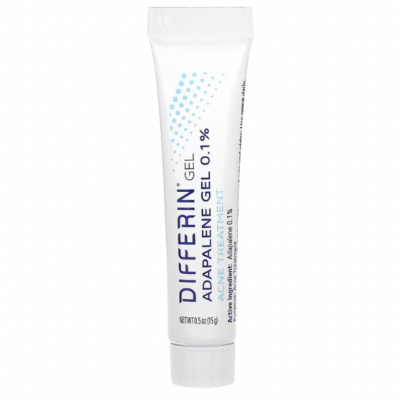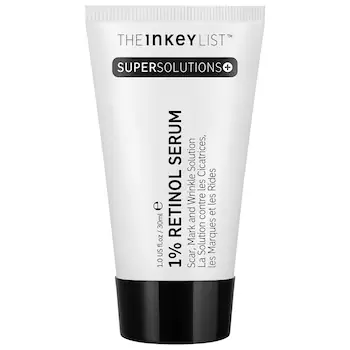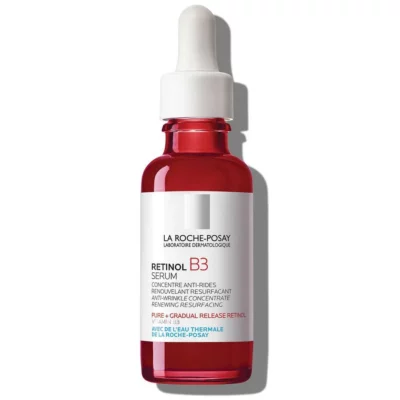The tides are changing, and there’s a shift in how the beauty industry—and society as a whole—talks about aging. Rather than forever trying to preserve our youth, we’ve collectively oriented our focus to embracing ourselves every step of the way. But in a world where anti-aging treatments—invasive and otherwise—are right at our fingertips, how do we make sense of the person it seems the world wants us to be? Answer: rituals and routines that make us feel our best—regardless of what anyone has to say about our wrinkles. And for me, retinol for sensitive has been an absolute godsend.
Sure, I’ve tried Botox and dermal fillers, and when administered properly, they can do wonders. But as much as I’ve loved the results, I’ve learned to lean into this graceful aging hero that’s a mainstay in derm-recommended skincare routines. Many experts I’ve spoken with consider retinol non-negotiable—and among editors, the much-hyped ingredient is often touted as a miracle worker.
Featured image from our interview with Sabeena Ladha by Suruchi Avasthi.


The Best Retinol for Sensitive Skin
But as magical as retinol can be, it’s not without its drawbacks. Striking the right balance with the powerful ingredient is crucial for achieving those glowy, optimal results. For a little skincare assistance, we tapped dermatologist, Dr. Nancy Samolitis—co-founder and medical director of FACILE dermatology + boutique—and esthetician, Matthew Miller—whose namesake salon is found in West Hollywood—to answer all our burning questions. From buffering for sensitive skin to the best retinol for every concern—it’s all right here.
What is retinol?
Retinol is a type of retinoid, a class of chemical compound derived from Vitamin A, which increases the production of collagen and promotes cell turnover. Simply put: retinol is a form of Vitamin A that’s available in over-the-counter skincare products.


How Retinol Works
One of retinol’s superpowers is the ingredient’s ability to speed up cell turnover, which keeps sluggish skin cells from becoming trapped in pores (which can cause inflammation), leading to brighter, fresher skin.
“Retinol’s anti-aging benefits are due to repair of cellular damage and normalization of the cells in the top layer of the skin,” Dr. Samolitis says. “When cells are turning over at a healthy rate, skin appears smooth and glowing instead of rough and dull.”
Is retinol safe to use on sensitive skin?
Ultimately, retinol is safe to use on all skin types. However, little adjustments—like starting slow or buffering your retinol—may be helpful for first-timers. “Retinol gets a bad rap for irritating sensitive skin,” Miller says. “While this can be true, it’s all about formulation. Prescription-strength Retin-A or tretinoin can be a little intense, which is why it’s very important to start slow.”
For more sensitive skin types, Miller recommends looking for Retinal/Retinaldehyde. This derivative usually offers amazing results while causing less irritation. “If you’re still nervous, you can start by buffering your retinol product by applying it after your moisturizer,” he advises.

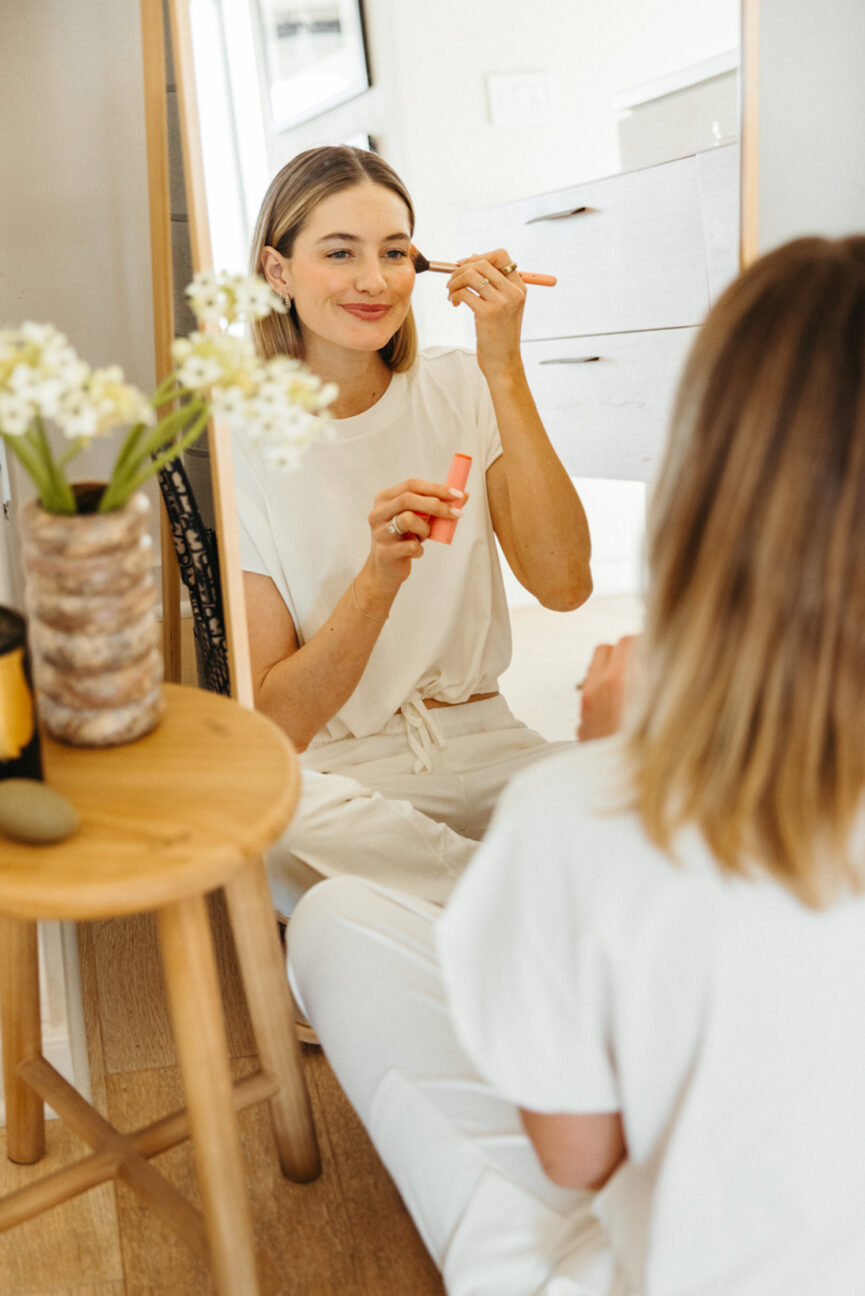
Potential Side Effects
Though flaking is never pleasant, it’s important to remember that a little bit is completely normal when you begin using a product as strong as retinol. “Your skin needs to adjust to retinol,” Miller notes. “In the beginning, some may experience drying, flaking, and maybe some redness. This is temporary, but like previously stated, always start slow (one to three times a week) in the beginning.”
And I’m sure we’ve all heard of the dreaded retinol purge. Retinol can cause clogged pores and breakouts—proof that sometimes, your skin has to get worse before it gets better. For most people, this stage lasts anywhere from 2-4 weeks, but it depends on the strength and potency of your product.
How often should you use retinol?
As your skin adjusts, you can work up to using retinol daily, as long as you’re not seeing side effects. Of course, this depends on what kind of formulation of retinoid you’re using. The best plan of action is to adhere to what your esthetician or medical professional suggests. Also, be sure to only apply retinol products at night, and remember to wear plenty of sunscreen during the day.

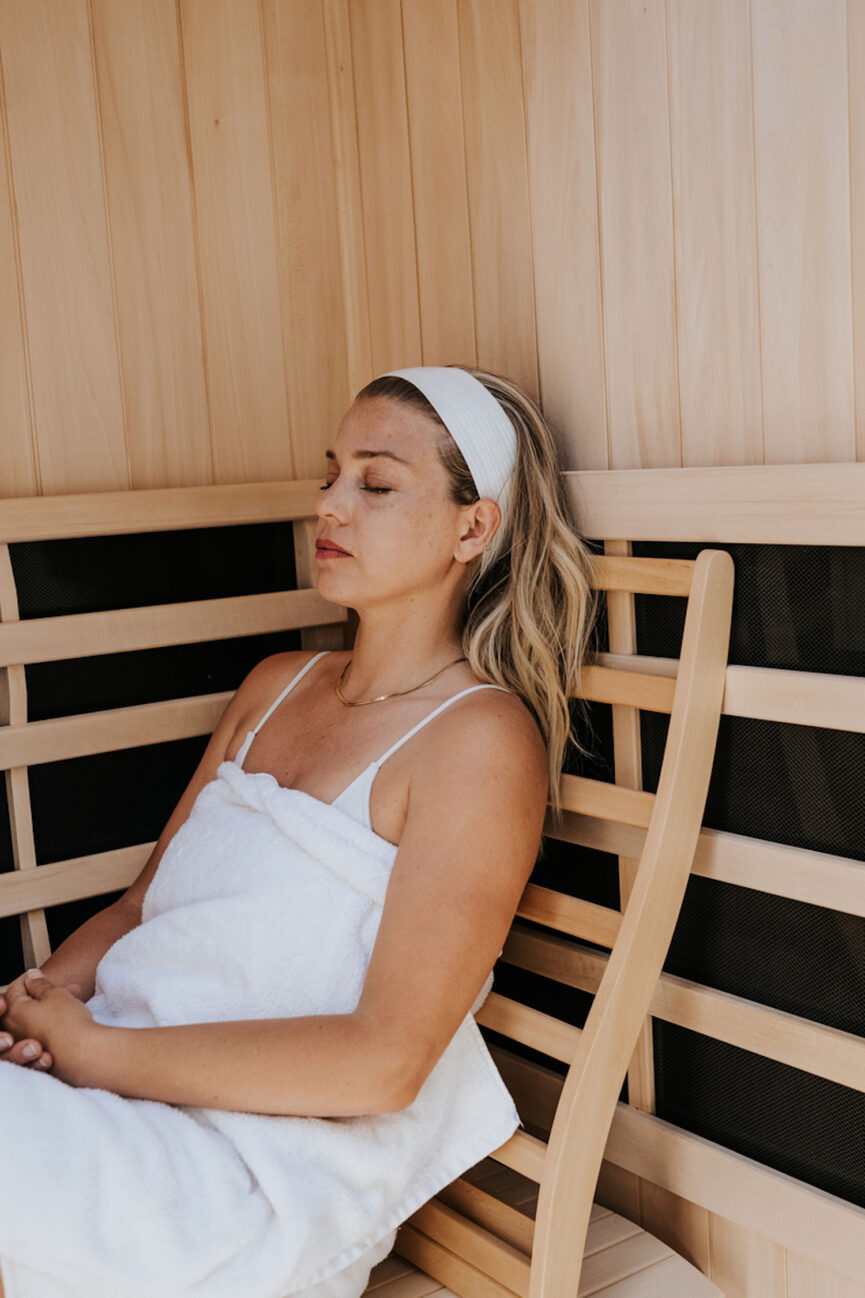
Are there areas where we should avoid using retinol?
The neck and chest area tend to be more prone to irritation when it comes to things like retinol or exfoliation, says Miller but those areas can still receive the ingredient. After applying retinol to your face, he recommends using any leftover product on your neck and chest to slowly introduce the ingredient. For the delicate skin under the eyes, look for formulations of retinol that have a lower potency and a moisturizing base.

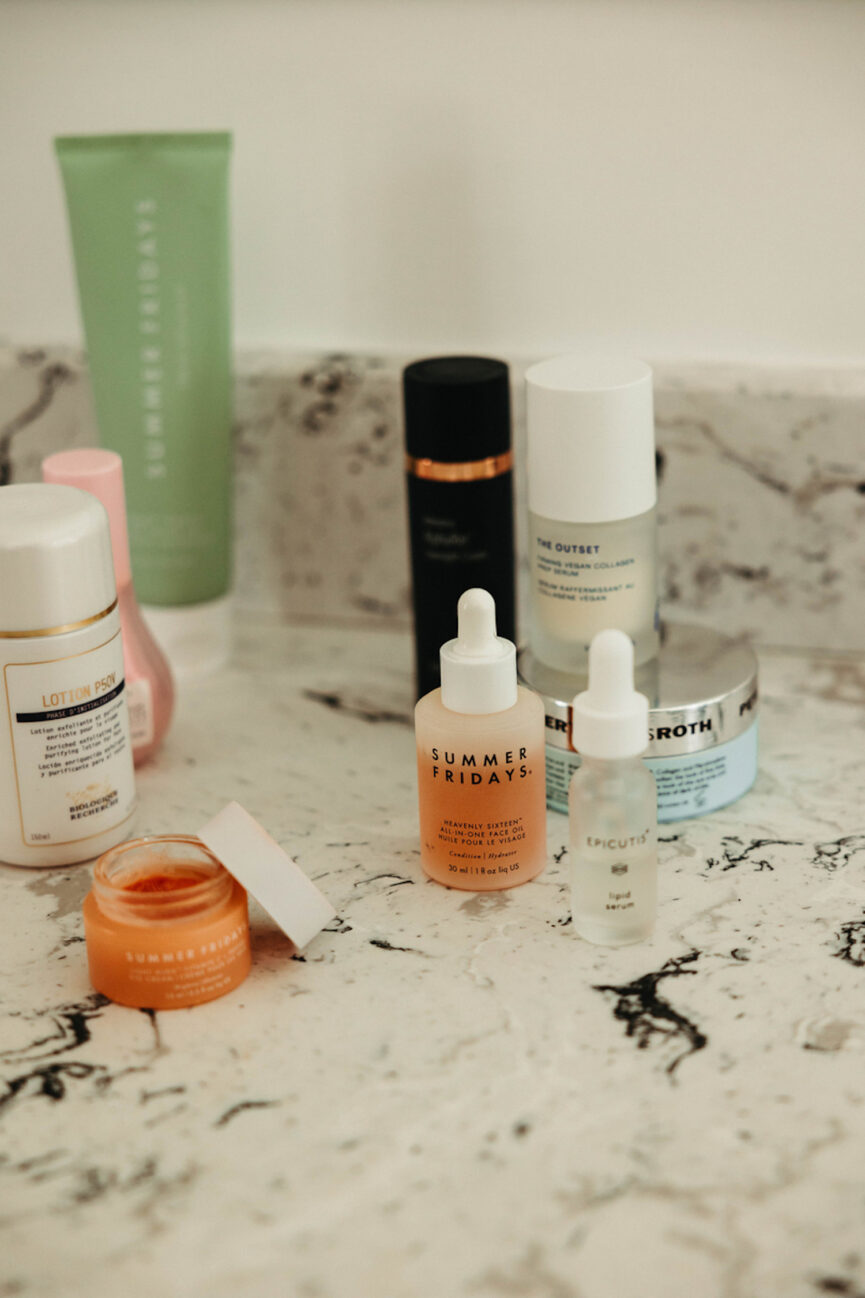
The Best Retinol Products for Every Skin Concern
The Best Retinol for Beginners: Senté BioComplete Serum
“The product contains a retinol that is slow release, allowing gentle penetration into the skin with fewer side effects,” says Dr. Samolitis, who also named the Senté product as her favorite serum-based retinol for sensitive skin.
Size: 1 oz.
Key Ingredients: Heparan Sulfate Analog (HSA), Retinol, Vitamin C, Peptides
Customer review: “This was recommended by my dermatologist and is fabulous! I use it nightly and it does not dry out my skin.”
The Best Retinol for Sensitive Skin: Oak Essentials Nightly Retinol Serum
Most of our experts’ recommendations for the best retinol take first-timers and those with sensitive skin into consideration, but we love that this pick from Oak Essentials (Jenni Kayne’s skincare line) boasts a stable, non-irritating formula. Featuring Retinol Lineolate to smooth fine lines and address uneven texture and Vegan Squalane for boosted hydration, it’s a gentle but effective serum that leaves you with a healthy glow.
Size: 1 oz.
Key Ingredients: Squalane, Retinyl Linoleate, Sodium Hyaluronate, Avocado Fruit Extract
Customer review: “I have used many retinol products and this one is by far my favorite. It glides on smoothly and absorbs into my skin well. The results are amazing!”
The Best Retinol for the Budget-Conscious: CeraVe Skin Renewing Retinol Serum
One of our favorite drugstore lotion brands offers an anti-aging serum (infused with ceramides for a little extra boost) that’s perfect for those looking to dip their toes into retinol.
Size: 1 oz.
Key Ingredients: Niacinamide, Ceramide 3, Ceramide 6-II, Ceramide 1
Customer review: “Love love LOVE this serum! I use it every other day, but it’s texture is nice & smooth non-sticky that it can be used daily. Lightweight scent & formula, no reactions. I do see improvements in my skin after using this product for a couple months!”
The Best Retinol for Eyes: COSMEDIX Eye Genius Brilliant Eye Complex
With a unique formulation of five peptides, which have similar firming effects to retinol without the harshness, the Eye Doctor tackles dark circles and fine lines gently, making it one of the best retinols for sensitive skin.
Size: 7 ml.
Key Ingredients: Squalane, Rosemary Leaf Oil
Customer review: “This is the best eye cream I’ve ever tried – seriously. It hydrates without ever feeling greasy or sticky. I have a hard time finding eye creams that don’t irritate my eyes or cause milia around my eyes, and this one has never clogged my pores or caused irritation! I definitely think it’s helping to reduce the fine lines around my eyes as well. Will keep buying again and again!”
The Best Retinol for Acne: PCA Intensive Clarity
“Designed for oily skin types, this potent retinol breaks up clogged pores effectively and contains other ingredients to treat and prevent discoloration from pimples,” Dr. Samolitis says.
Size: 1 oz.
Key Ingredients: Witch Hazel Water, Retinol, Bakuchiol
Customer review: “I’ve been a practicing Esthetician for years. However, I’ve consistently used this PCA retinol w/salicylic acid to treat my own skin for the last 5 years and constantly recommend it to my clients. The results I’ve seen from this product have been phenomenal and continual. I truly cannot recommend it enough! I’m 42 and have combo skin that is prone to breakouts. This product has been key in keeping my skin clear, fading hyperpigmentation AND keeping the lines/wrinkles at bay.”
Runner Up, Best Retinol for Acne: Differin Adapalene 0.1% Acne Treatment Gel
One of the best over-the-counter products for treating acne (and the first retinoid gel approved for OTC use), Differin has a bit of a cult following for those who have regular brushes with acne. Miller recommends the gel for both treating acne and restoring the skin’s texture and tone.
Size: 0.5 oz., 1.6 oz.
Key Ingredients: Adapalene 0.1% (retinoid), Poloxamer 182, Sodium Hydroxide
Customer review: “I developed cystic acne in my early 20s that consisted of painful breakouts all over my face. I started using this last year and assumed it wouldn’t work (that month of purging is normal). My process: I used a CeraVe cleanser every morning, then applied this gel and continued with a moisturizer (CeraVe) afterwards as not destroy my skin barrier. It is now year later and my acne is GONE and I do not break out at all. This wasn’t a quick process for me and I did not notice immediate results, even 5 months in. I highly recommend this product and I hope it works for you the way it did for me, but have patience.”
The Best Retinol for Discoloration: The Inkey List SuperSolutions 1% Retinol Serum
We’ve long loved The Inkey List for its affordable, effective formulations, and the brand’s retinol serum is no different. Featuring both Apricot Kernel Oil and Squalane, the formula is deeply nourishing, smooths skin texture, and is the best—and most gentle—retinol serum for brightening dark spots.
Size: 1 oz.
Key Ingredients: Retinyl Acetate, Granactive Retinoid, Squalane
Customer review: “Love this product. I am using it together with niacinamide and it makes my skin glow the next morning. My skin tone is getting better and better. Recommended to my sisters and ordered for them too.”
Runner Up, Best Retinol for Discoloration: La Roche-Posay Retinol B3 Serum
“This product combines retinol and niacinamide for resurfacing with potent brightening effects,” Dr. Samolitis says.
Size: 1 oz.
Key Ingredients: Niacinamide, Hyaluronic Acid, Glycerin, La Roche-Posay Thermal Spring Water
Customer review: “I really could not believe the visible difference in just a few days. I was amazed. I receive consistent compliments on my skin after using the product for about three weeks. It will now be a staple in my skin care routine!”
The Best Retinol for Dull or Dry Skin: Shani Darden Retinol Reform
“It contains a gentle retinol and exfoliating lactic acid to smooth uneven texture without dryness,” says Dr. Samolitis, who also named the Shani Darden product her favorite cream-based retinol.
Size: 0.03 oz., 1 oz.
Key Ingredients: Encapsulated Retinol, AHA, Pyrus Malus (Apple) Fruit Extract
Customer review: “I absolutely love this product! It is so nice and has made my skin feel absolutely amazing. I have truly noticed a different in both the feel and appearance. This is definitely a must have in a luxury skincare routine.”
Runner Up, Best Retinol for Dull or Dry Skin: VERSED Press Restart Gentle Retinol Serum
As suggested by Miller, this gentle serum comes highly recommended for first-time retinol users. Formulated with sensitive skin in mind, the VERSED product delivers all the positive effects of the “holy grail” ingredient without leaving your skin in a panic. It’s definitely one of the best retinols for sensitive skin.
Size: 1 oz., 2 oz.
Key Ingredients: Encapsulated Retinol, Bakuchiol, Arophira
Customer review: “I will continue to purchase this product over and over. This was one of the very rare times I was shocked at how well it worked for the bumps and redness on my arms that had developed over the last 6 months. My arms feel so much smoother and the bumps and redness have diminished over the last month of using this product. I have incorporated it into my nightly routine for my arms and neck. This has also helped to soften/diminish my tech neck lines.”


